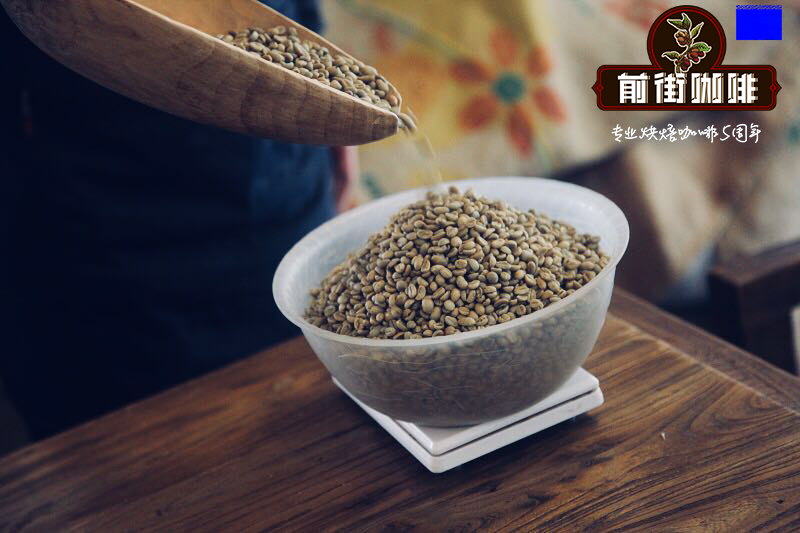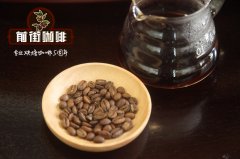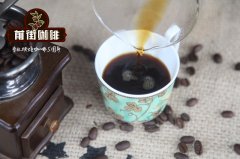How to roast Brazilian coffee beans? what is the good baking degree of Brazilian coffee beans? introduction to Brazilian coffee beans.

Professional coffee knowledge exchange more coffee bean information please follow the coffee workshop (Wechat official account cafe_style)
In fact, as long as it is a high-quality Brazilian coffee bean, even if your brewing technology is not very skillful, it can show the unique flavor of the Brazilian coffee bean coffee producing area, but if the coffee bean itself is defective, it is necessary to use excellent brewing technology to cover up the defective flavor.
Not only the quality of Brazilian sun-tanned coffee (dryprocessed coffee) has improved significantly, but Brazilian pulp sun-tanned coffee (pulpednatural coffee) is also impressive. The same principle of pulp solarization known as PulpedNatural; in Brazil is called Honey/MielProcess in Costa Rica. Coffee farmers in Central America feel that the pulp left on the bean shell is as thick as honey, so they call it honey-treated MielProcess. Pulped natural is actually the same as honey process.
Flesh Solar treatment (pulped natural process) was pioneered by Pinhalense in Brazil in 1991. The title of this new method of treatment makes the definition of coffee treatment more confusing than before. Because it also uses the word "natural", but the word "natural" in Brazil traditionally means a picking method "natural harvesting style". "natural" is further used to call all "dry processing" coffee. And flesh solarization (pulped natural process) is sometimes called semi-washing (Semi-washed process). Unfortunately, it is somewhat similar to the local wet planing (wet-hulling process) in Indonesia, but in fact, wet planing and pulp solarization are completely different things.
In Central America, if a pectin remover (demucilager) is used to remove 100% of coffee pectin, this treatment is called mechanically washed. {in Brazil, as long as mechanical equipment is used, it is collectively referred to as pectin solarization (pulped Natural).
There are many coffee producers in Brazil who are working to change the traditional perception of the quality of Brazilian coffee beans. Coffee consumption is also on the rise in Brazil. I am sure that Brazil has a lot of room for development in the future boutique coffee time. At the end of this trip to Brazil, I am full of curiosity and expectation about the future development of Brazilian coffee beans.
Important Notice :
前街咖啡 FrontStreet Coffee has moved to new addredd:
FrontStreet Coffee Address: 315,Donghua East Road,GuangZhou
Tel:020 38364473
- Prev

Brazilian coffee bean grading system Brazilian coffee beans recommend Brazilian coffee beans what is Santos coffee
Professional coffee knowledge exchange more coffee bean information please follow the coffee workshop (Wechat official account cafe_style)
- Next

Guide to the baking curve of Brazilian coffee beans description of taste and flavor of Brazilian coffee beans by different treatments
Professional coffee knowledge exchange more coffee bean information please follow the coffee workshop (Wechat official account cafe_style)
Related
- Detailed explanation of Jadeite planting Land in Panamanian Jadeite Manor introduction to the grading system of Jadeite competitive bidding, Red bid, Green bid and Rose Summer
- Story of Coffee planting in Brenka region of Costa Rica Stonehenge Manor anaerobic heavy honey treatment of flavor mouth
- What's on the barrel of Blue Mountain Coffee beans?
- Can American coffee also pull flowers? How to use hot American style to pull out a good-looking pattern?
- Can you make a cold extract with coffee beans? What is the right proportion for cold-extracted coffee formula?
- Indonesian PWN Gold Mandrine Coffee Origin Features Flavor How to Chong? Mandolin coffee is American.
- A brief introduction to the flavor characteristics of Brazilian yellow bourbon coffee beans
- What is the effect of different water quality on the flavor of cold-extracted coffee? What kind of water is best for brewing coffee?
- Why do you think of Rose Summer whenever you mention Panamanian coffee?
- Introduction to the characteristics of authentic blue mountain coffee bean producing areas? What is the CIB Coffee Authority in Jamaica?

